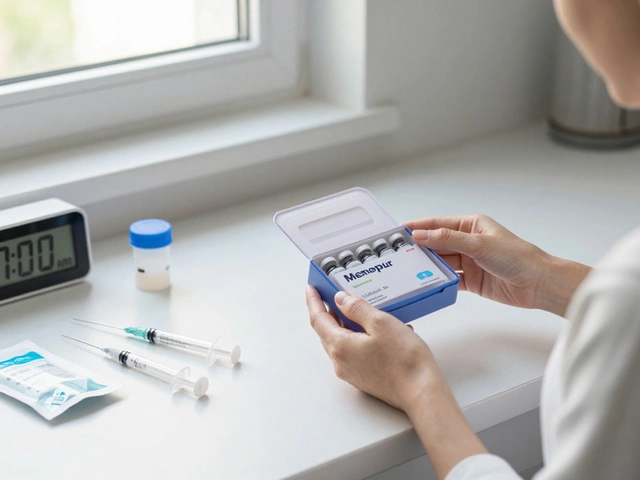Wondering how long you'll stay in hospital after heart surgery? Find specific stats, recovery tips and what impacts stay length with real-life insights and facts.
Read MoreAverage Hospital Stay After Heart Surgery – What to Expect
Having a heart operation can feel scary, especially when you wonder how long you’ll be stuck in a hospital bed. Most people think the stay is a fixed number, but it really depends on the type of surgery, your health, and how quickly you bounce back. Below we break down the usual timeline and give you practical tips to keep the stay as short and comfortable as possible.
Typical Length of Stay
For most coronary artery bypass graft (CABG) procedures, patients leave the hospital after 5 to 7 days. Less invasive procedures such as valve repair or minimally invasive bypass often shave a day or two off that window, so you might go home in 3 to 5 days. If you’ve had a heart transplant or a complex multiple‑valve surgery, the stay can stretch to 10‑14 days because doctors need extra monitoring.
Factors That Can Change the Stay
Several things can push your discharge date earlier or later. Age matters – older patients usually need more time to regain strength. Pre‑existing conditions like diabetes, COPD, or kidney problems can slow healing. Any post‑op complications – bleeding, infection, arrhythmia, or respiratory issues – will add days. On the flip side, a good pre‑op fitness level, strict blood‑sugar control, and a supportive home environment can help you meet discharge criteria sooner.
Different surgical approaches also matter. A traditional sternotomy (splitting the breastbone) requires a longer recovery because the bone needs time to knit back together. Minimally invasive techniques that use small incisions avoid cutting the sternum, so patients often sit up, walk, and eat sooner.
What you do before the operation also counts. Patients who complete a pre‑hab program – light cardio, breathing exercises, and nutrition counseling – usually have smoother post‑op courses. The same goes for quitting smoking and limiting alcohol weeks before the surgery.
Once you’re in the hospital, the care team follows a set of discharge criteria. They’ll check that your wound is clean, your breathing is stable, you can walk a short distance with minimal pain, and you understand your medication schedule. Blood pressure, heart rhythm, and lab tests must be within safe ranges. If any of these checkpoints fail, you’ll stay longer until they’re resolved.
Even after you leave, the real work starts at home. Cardiac rehab programs begin within a week or two and are key to regaining stamina. Your doctor will likely prescribe low‑dose aspirin, statins, and beta‑blockers, so learning how to take them correctly avoids readmission.
Here are a few things you can do right now to improve your odds of a shorter stay:
- Practice deep‑breathing exercises every few hours – they keep lungs clear and reduce infection risk.
- Get up and walk a few steps as soon as the nurse says it’s safe – early movement speeds up circulation and prevents blood clots.
- Stay hydrated – proper fluids help kidney function and wound healing.
- Follow the diet plan your dietitian gave you – low‑salt, high‑protein meals aid recovery.
- Ask the team to explain each medication; knowing why you take it keeps you compliant after discharge.
If you want more detailed guidance, check out our post “Life After Heart Surgery: Recovery, Expectations, and Real‑Life Tips.” It goes deeper into daily routines, emotional adjustments, and long‑term heart health.
Remember, the average stay is just a benchmark. Your personal timeline will reflect how well you prepare, how your body reacts, and how quickly your care team can clear you for home. Stay proactive, ask questions, and follow the plan – you’ll get back to normal life faster than you think.





